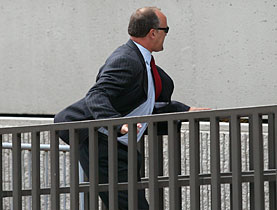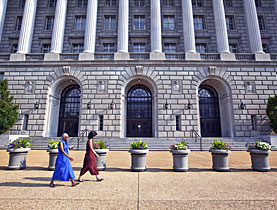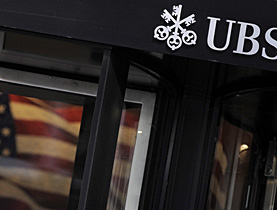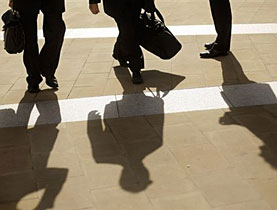US tax amnesty nets thousands of cheats

A United States tax amnesty, part of a campaign to crack down on perceived tax havens such as Switzerland, has netted 7,500 repentant tax dodgers.
An investigation into UBS, that found that the Swiss bank had helped US citizens evade tax, helped fuel a crusade to weed out cheats who were using offshore accounts to hide undeclared assets.
The amnesty, that ended on October 15, offered reduced punishments for those who voluntarily declared their guilt. Culprits will pay a fine between five and 20 per cent of their stashed assets as opposed to a 50 per cent levy and a possible prison sentence faced by those who did not come forward.
The IRS even extended the amnesty for a month to help tax lawyers cope with a deluge of worried clients who wanted to come forward.
It is not yet clear how many of the 7,500 had accounts in Switzerland. But Doug Shulman, commissioner of the Internal Revenue Service (IRS), said the disclosures would be scoured to identify which institutions had helped the tax evaders.
UBS bears brunt
“This entire effort is not just about UBS and a single country,” Shulman told a news conference. Credit Suisse has also been identified by the IRS as a depositary of some funds, but chief executive Brady Dougan said earlier this month that the bank was not anticipating any problems.
UBS has so far borne the brunt of the wrath from the US tax authorities. The bank was fined $780 million (SFr794 million) in February and handed over details of more than 200 clients to the IRS after admitting its part in a tax evasion scam.
But Swiss banking secrecy was dealt a greater blow in August when the government was forced to lift the veil on a further 4,450 UBS customers under the terms of deal with the US authorities.
US clients of UBS had been scrambling to find out if their names are on the list before the tax amnesty deadline expired. One lawyer in Lugano, in the Italian-speaking part of Switzerland, obtained a court order forcing UBS to reveal if certain clients were included on the list.
Whistleblower jailed
The UBS investigation was sparked by testimony from Bradley Birkenfeld, a former bank employee turned whistleblower
Birkenfeld was sentenced to more than three years in prison in August despite his cooperation leading to the successful indictment of UBS.
The National Whistleblowers’ Center (NWC) in the US expressed outrage that Birkenfeld’s sentence, saying the prison sentence would stop other people from coming forward.
“The prosecution of Brad Birkenfeld, the most important whistleblower in US history, has done incredible damage. The day that Brad goes to jail will be a national holiday in Switzerland and other tax haven countries,” said NWC executive director Stephen M. Kohn.
“The IRS needs to put away the celebratory firecrackers. The amnesty programme has gotten at best a thimble of the offshore tax cheats,” he added.
However, Swiss bankers, far from enjoying a holiday, are still smarting from a concerted global attack on so-called tax havens that has eroded the foundations of banking secrecy.
Ivan Pictet, a senior partner at Pictet private bank, was the latest Swiss banker to speak out against the global crusade, referring this week to the tax haven campaign as “violent attacks from abroad”.
Matthew Allen, swissinfo.ch
US tax amnesty
The US tax amnesty started on 26 March this year and expired on October 15, having been extended from the original cut-off date of September 23.
Some 7,500 people came forward to declare hidden assets in around 100 banks in 70 countries.
These accounts held amounts ranging from $10,000 to $100 million, according to the IRS.
The IRS said it will beef up its operations with an extra 800 staff over the next few years.
On May 14, 2008, former UBS employee Bradley Birkenfeld and a Liechtenstein businessman were charged by the US authorities with helping an American billionaire avoid paying taxes on $200 million of assets deposited in Swiss and Liechtenstein bank accounts.
Birkenfeld turned whistleblower, giving details of UBS private banking practices to US prosecutors.
In July, a Miami court authorised the Internal Revenue Service to issue a summons on UBS demanding the release of confidential information on clients the agency suspected of tax evasion.
In the same month, UBS told a congressional hearing that it would stop offshore banking activities for US clients.
UBS agreed in February 2009 to pay $780 million and name some United States clients to resolve criminal fraud charges against it. However, this did not affect a separate demand from the IRS for the details of 52,000 UBS clients, in direct contravention of Swiss banking secrecy laws.
In August, Switzerland agreed to process a request by the US for details of 4,450 American accounts of the UBS bank to end a tax dispute between the two countries. Under the accord, which was signed in Washington, UBS does not face a fine or suffer other punitive damages.
The accord is expected to ease tensions in relations between Washington and Switzerland over possible violations of the country’s banking secrecy laws and prevent a clash of Swiss and US jurisdictions

In compliance with the JTI standards
More: SWI swissinfo.ch certified by the Journalism Trust Initiative












You can find an overview of ongoing debates with our journalists here . Please join us!
If you want to start a conversation about a topic raised in this article or want to report factual errors, email us at english@swissinfo.ch.